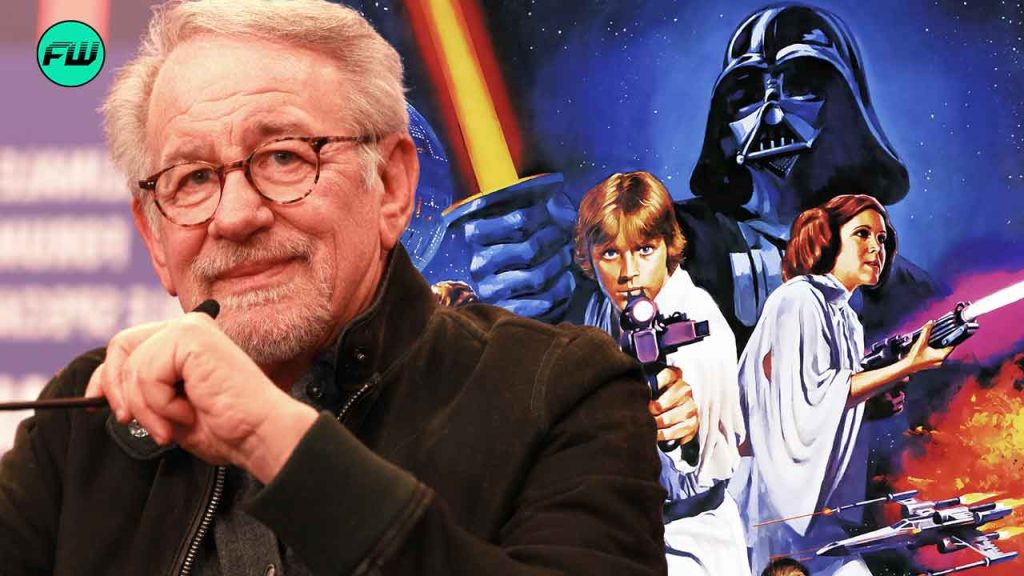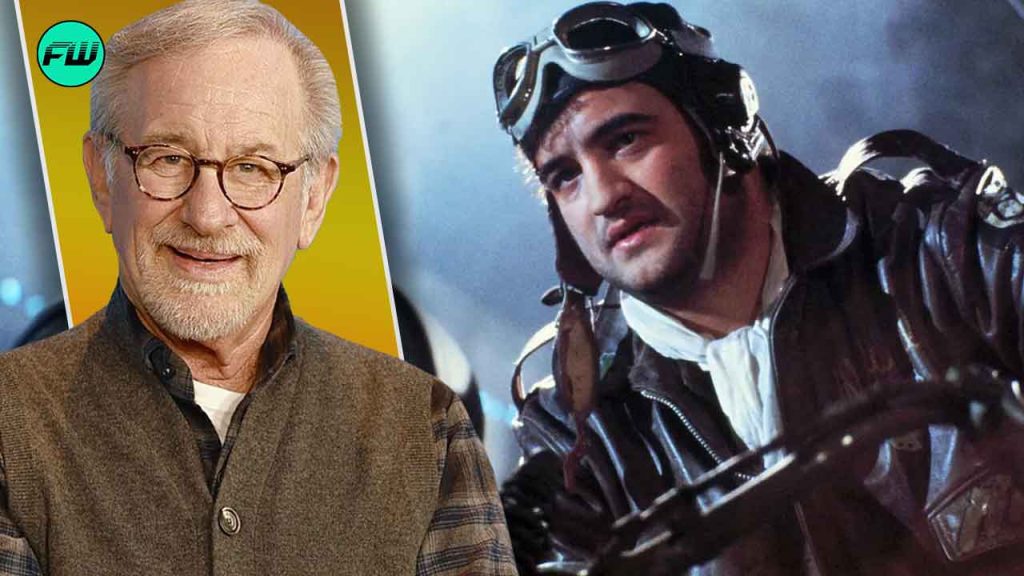Steven Spielberg, the master auteur, had somewhat of a crash course in the interdependent working relationship between a director and the studio quite early on in his career. Despite his natural expertise and ingrained talent for producing cinematic masterpieces, Spielberg is not entirely immune to box office failures.
![Steven Spielberg on the sets of 1941 [Credit: Amblin] Steven Spielberg on the sets of 1941 [Credit: Amblin]](https://fwmedia.fandomwire.com/wp-content/uploads/2024/07/16152549/Steven-Spielberg-on-the-sets-of-1941-Credit-Amblin-1024x682.jpeg)
The director of the aquatic thriller, Jaws, and sci-fi alien film, Close Encounters of the Third Kind, had ridden the wave of success and glory for far too long to realize that without studio interference, a project can sometimes go downhill too. And Spielberg was quick to learn that on the evening of the premiere of 1941.
Steven Spielberg and His Radical New Hollywood Era
No studio production enters the final theatrical lineup without the absolute say-so of the higher-up execs. The Hollywood of today is entirely guided by the principle of equal collaboration between the suits and the creatives. However, this wasn’t the case during Steven Spielberg’s New Hollywood era of the 60s, 70s, and 80s.
![Steven Spielberg – Behind the scenes on 1941 [Credit: Amblin] Steven Spielberg – Behind the scenes on 1941 [Credit: Amblin]](https://fwmedia.fandomwire.com/wp-content/uploads/2024/07/16152553/Steven-Spielberg-%E2%80%93-Behind-the-scenes-on-1941-Credit-Amblin-1024x576.jpeg)
Guided by a liberation of creativity and a proliferation of new-age ideas, cinema took the shape of innovation while the screens became a blank canvas for the filmmaker’s imagination. Without studio interference or censorship, some of the best works of the industry were conceived during this period by directors like Stanley Kubrick, Martin Scorsese, George Lucas, and of course, Steven Spielberg.
However, one small misstep now and again would remind the modernist and avant-garde directors of their radical approach towards filmmaking, since sometimes, their cinematic visions would not translate well to the screen. Audiences would fail to grasp the film, its message, and its tone and directors would fail to make the best out of their script.
Steven Spielberg’s Crash Course in Filmmaking
For a director, the business-mindedness of what would draw a reaction from the crowd or which scenes are irrelevant to the film don’t immediately factor into the equation. Often, a third perspective removed from the director’s own vision works best in determining how to sell the idea in the best possible way to a moviegoing audience. That is where focus groups, test crowds, studio notes, and MPAA ratings come in.
![1941 (1979) [Credit: Amblin] 1941 (1979) [Credit: Amblin]](https://fwmedia.fandomwire.com/wp-content/uploads/2024/07/16152613/1941-Credit-Amblin-1-1024x576.jpeg)
Steven Spielberg suffered a somewhat similar fate with his film, 1941, which failed to hit its mark as a comedy upon release. After scoring two consecutive blockbuster hits with Jaws and Close Encounters, Spielberg’s no-ceiling budget and freedom from studio oversight left the project in tatters. The director later revealed during a talk at the 2022 TCM Classic Film Festival:
[1941] was the biggest detonation, at that moment in my career. It was my longest schedule. We shot for 158 days, more than 100 days over schedule. But because we were shooting back to back, the studio just started writing checks, saying ‘Let’s see what happens.’ And they gave me an unlimited ceiling to make ‘1941.’ And it took me 178 days to shoot the picture, because I directed all the miniature work… That was the worst mistake you could have made.
But I had a great time making the film. And then I showed the picture for the first time in Texas, at my good luck theater, the Medallion Theater in Dallas. You could have heard a pin drop. It was the first comedy ever made without laughs.
Despite being packed with who’s who of Hollywood, ranging from John Belushi, Nancy Allen, Treat Williams, Christopher Lee, John Candy, Dan Ackroyd, Ned Beatty, and Slim Pickens, 1941 was no more a comedy than Schindler’s List.
After leaving behind his renegade reputation in the 70s, Steven Spielberg continued to expand upon his visionary style with projects like Indiana Jones, Jurassic Park, Schindler’s List, Saving Private Ryan, Catch Me If You Can, and countless others. His latest project, Masters of the Air, is an extension of a collaboration with Tom Hanks that began 24 years ago with Band of Brothers.
1941 is available to buy/rent on Apple TV and Prime Video.




